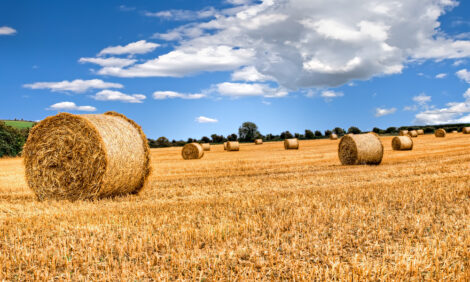



Proteon COO speaks on waste in the livestock production cycle, sustainability
Matthew Tebeau shares Proteon's exciting journey in 2022 and what sustainability means to the livestock industryJamie Reid, business development manager with Animal AgTech Innovation Summit speaks to Matthew Tebeau, COO at Proteon Pharmaceuticals about the company’s exciting journey this year and the meaning of sustainability for the industry.
Editor’s note: the following conversation has been summarized. Watch the full interview here.
Tell me about Proteon Pharmaceuticals.
Protein pharmaceuticals modulate the microbiome to improve animal health across livestock farming and aquaculture, and we use bacteriophages as the way to do that. This year, we've been focused on launching a product for control of avian pathogenic E. coli called Bafacol™ as well as further developing our business and product development platform.
Which geographies do you work in?
We have global products and operate in all the markets that need improvement in animal productivity, animal health and welfare and antimicrobial reduction.
Moving into new geographies brings new challenges and exciting developments. What are you seeing from your side?
The launch of our avian pathogenic E. coli product has been a great success and creates a new opportunity in emerging markets to reduce antibiotic use. Often, antibiotics have a great deal of antimicrobial resistance, and they don't work that well. For diseases like this, there are few options, so this has been a real revelation.
Over the last year or so Proteon has been conducting a comprehensive study with the single cell genomics (SCG) claims on the technology. Have there been any updates on that that you can share?
We've been working hard on quantifying hard-to-quantify things like antimicrobial resistance (AMR) reduction. There really aren't standards that exist, so we're developing new standards. We've also been looking at the inputs in the production and distribution of our products. We have three commercial products, and we were seeing that, in fact, our products are carbon negative, when you compare the inputs versus the results, in terms of performance improvement and impact on the environment, so we're really excited about this.
As an animal health company, how do you see yourselves as an actor in the sustainability space?
We're a biotech company really engaged in animal health, or at least we see ourselves that way. Why I would make that distinction is we're bringing alternatives and options that will help the animal health industry to achieve goals that, frankly, it's talked about for a long time but it's not making great progress toward. Increased animal health reduces waste, reduces impact, increases sustainability, and that's what we're all about. We think it's important because in developed markets, this is what the consumers are beginning to expect. In emerging markets, there haven't been the tools that you've had in some of the developed markets to achieve this. They've got even more performance gains that they can achieve. You need to be able to do that sustainably. For example, just creating higher tech barns that use energy to make chickens fatter is not necessarily a sustainability criterion, it increases protein production, but it's not necessarily going to make that better. Reducing the cost of disease has a direct impact on improvement of sustainability, reduction of antimicrobials as well as economic performance. That's how we see our focus in the industry.
Sustainability is a topic that's going to resonate with a lot of people attending the Animal Ag Tech Innovation Summit in Amsterdam and the following event in San Francisco next year. Hence, our roundtable discussion in October which will be about waste within the production cycle. Who are you looking to engage with during the roundtable?
I think roundtables are great opportunities to brainstorm and see the larger picture. When you're hosting a roundtable, you're trying to bring together different voices and perspectives. We want to talk about reduction of production waste, and there are a lot of different places that can happen. You have tech-oriented animal health, you have companies like ours who are looking at disease reduction, you have large multinationals with integrated product portfolios. You have producers and different players, who really benefit from engaging in that discussion and coming out of it with the perspective of how these kinds of innovations interact and achieve that goal because I think there's not been enough of a focus on the opportunity of waste reduction. And that can be defined in quite a number of ways, in fact, so we're excited to bring together different voices that have good ideas in that space.



